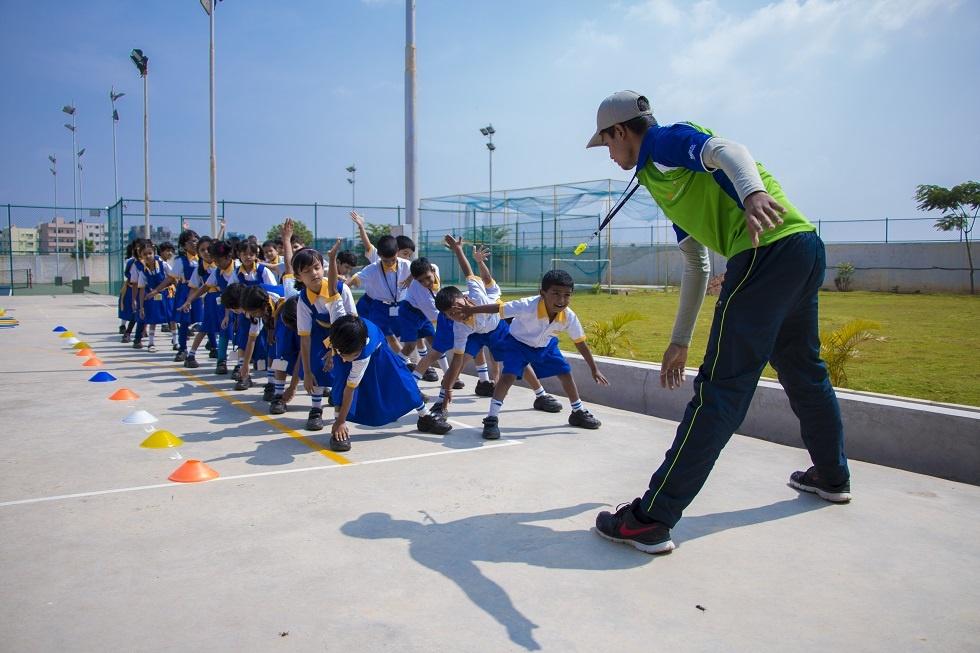We all agree that a school impacts how children perform academically.
What some of us might have not known is the fact that schools also play a very important role in maintaining the health and fitness of our children. Studies have consistently shown that schools which have a good sports and physical education culture have children who are healthy and happy.
It is important that this message is communicated to our society at large because the health of Indian children is far below the required levels. More than 2 in 5 children have poor BMI. The fitness levels in other physical fitness parameters such as upper body strength, lower body strength and abdominal strength is also not ideal.*
The importance of schools in maintaining the fitness of children is increasing day by day. Today, we are seeing the rapid reduction of play spaces for children, especially in metros and other large cities. Whereas earlier children played in empty sites, fields or even on roads, the situation is not the same today.
A school not only provides the infrastructure and space to play, it also provides children with different peer groups to interact with – Children of their same age as well as children who are older and younger than them. This opportunity to interact with a large group of people in a competitive environment is one often unnoticed benefit of playing sports.
Importance of Sport and physical activity
Traditionally, it has been viewed by Indian parents that performance in academics trumps all. Even though this mindset is slowly changing, and parents are realizing the importance of sports, a lot of the benefits of sport is still not widely known or acknowledged. Beyond the obvious and well-known health and fitness related benefits of physical activity, sport drives the cognitive development of children during their early years. This is backed up by studies which show the positive effect that sport and physical activity has on the development of the brain in children. Participation in sports has also shown a positive correlation with performance in academics.
Sports also tends to inculcate problem solving skills in children. Coming up with solutions to overcome obstacles either alone, or with a peer group teaches skills that are essential to succeed as an adult. Participation in sports also involves interacting with a large peer group with minimal intervention from adults. Critical life skills such as conflict resolution, self-discipline, the ability to deal with both success and failure are fostered through sport or play. Situations that are difficult to recreate in an academic setting or project is easily created in a competitive sports environment.
In lower income communities’ sports is used widely as a tool to improve the lives of children. In various initiatives across the world, sport has been successfully used to direct at risk children away from a life of crime. Sport has also been used to instill a sense of purpose in children. Sport provides an opportunity to be good at a certain skill which boosts confidence and self-respect.
What should schools do?
The schools should ensure that they have a good sports culture. It is not necessary to have good sports infrastructure to have a great sports culture. Even with good facilities and infrastructure it is possible to get it wrong. Encouragement of children to participate in sports and ideal utilization of existing facilities is the first step towards achieving this goal. Some schools have opted to implement structured sports programs. These programs ensure that every child is engaged. The activities that the children participate in are age appropriate. These programs also are designed in such a way as to optimize exiting school sports infrastructure. Periodic assessments of the fitness and health of children, along the lines of academic tests and exams, are also useful. Timely interventions can be implemented if the fitness of children falls below required levels.
All these steps should would ensure that children in schools are physically active. And just as the famous proverb goes “ All work and no play makes Jack a dull boy”- a physically active child is a happy child.
*EduSports 9th Annual Health Survey
